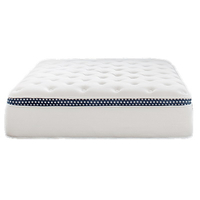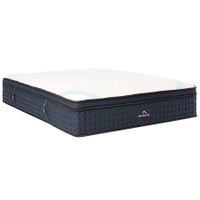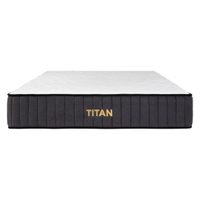Are memory foam mattresses good for heavy people? I’m a sleep writer — here’s my take
Is the cushioned comfort of memory foam suitable for bigger bodies?
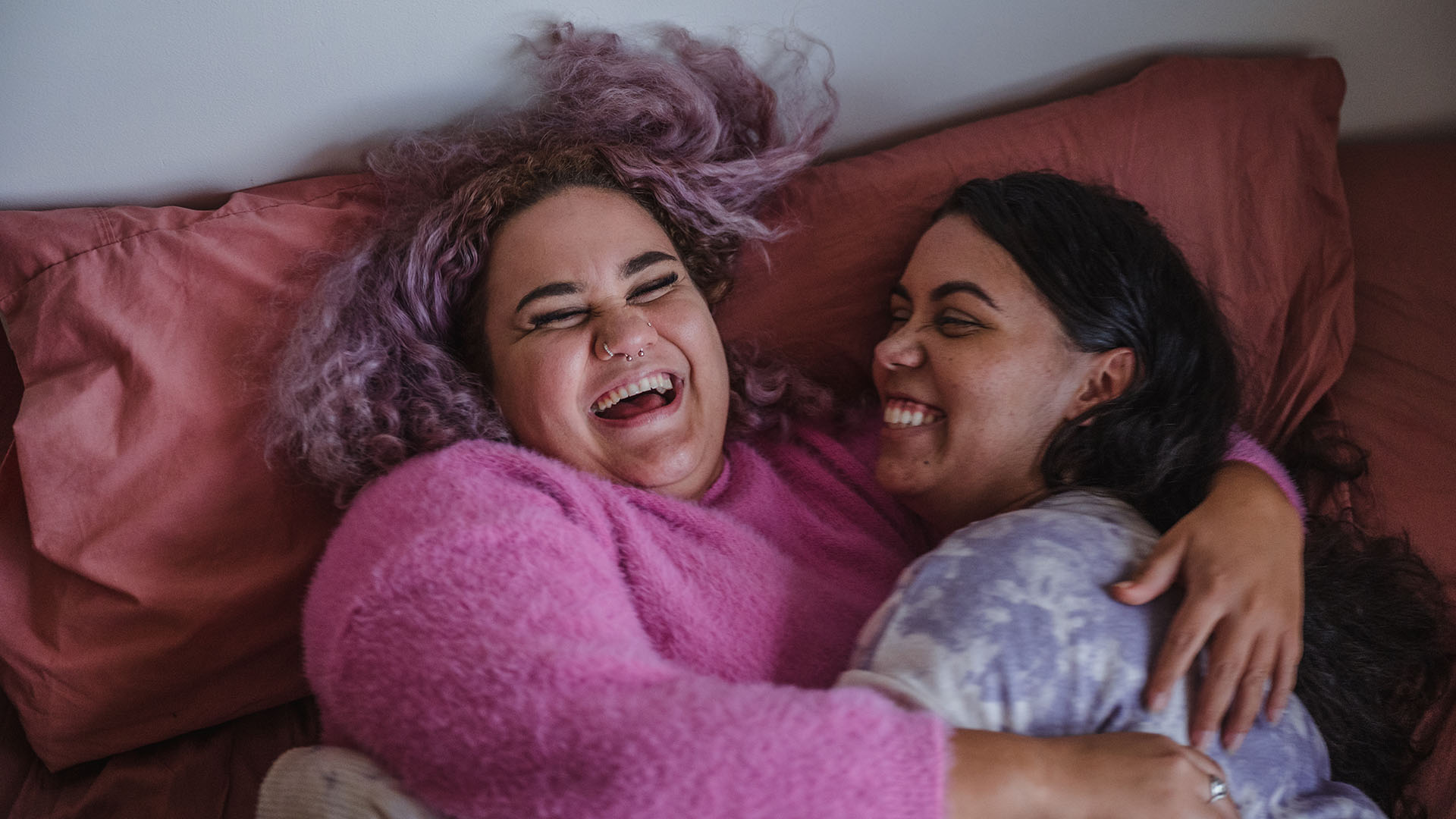
Memory foam is a dreamy mattress material thanks to its sink-in comfort – but sink too far and it becomes a nightmare. If you have a heavier build, you might be wondering if squishy memory foam mattresses are right for you.
Several memory foam mattresses feature in our guide to the best mattresses of this year, offering cushioned pressure relief that's particularly good for side sleepers. However, as a sleep writer, I understand that these dense foams aren't suitable for everyone. If you have a bigger body, a memory foam mattress can feel like quicksand, without the support your body needs.
In this guide, I'll take a look at the pros and cons of memory foam mattresses for heavy people, including potential weight capacity and the importance of high density foams. I'll also explore some of my favorite mattresses for heavy people. Let's get started...
What is a memory foam mattress?
A memory foam mattress is a bed made using slow-moving, contouring memory foam. The best memory foam mattresses have a cushioned feel that 'hugs' the joints to provide ample pressure relief, with a dense core to support the spine and lumbar region. Most sleep brands have a memory foam option in the range, with top memory foam brands including Nectar, Tempur-Pedic, and GhostBed.
Memory foam is a polyurethane foam that was initially developed by NASA for use in space suits before later being adapted into a mattress material. It's squishy and dense, so when you press your hand into memory foam, it takes a while to return to its original shape. This slow movement is excellent at motion isolation, but the thick build can hold onto heat.
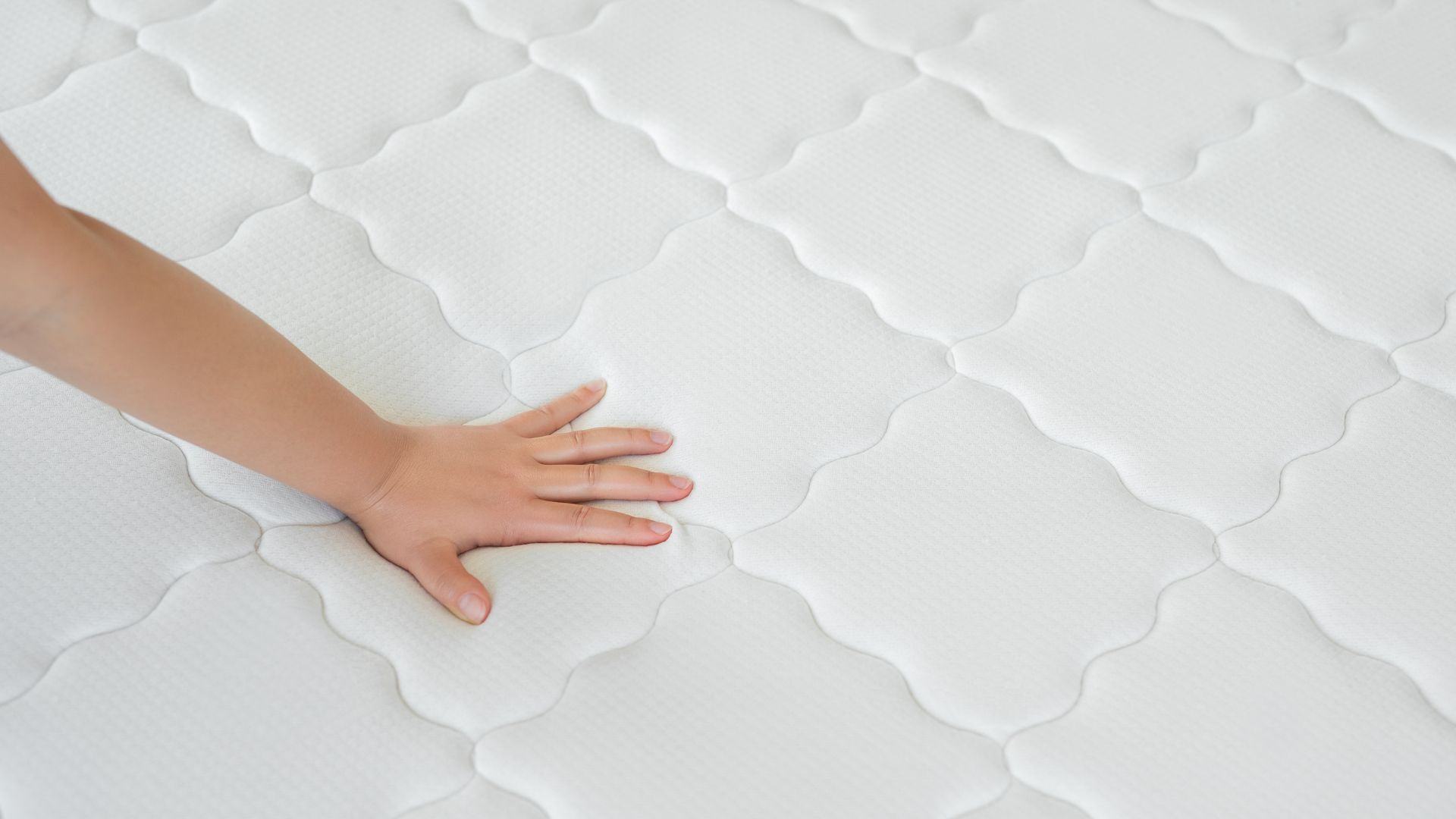
Do memory foam mattresses have a weight limit?
All mattresses have a weight limit, with the majority of standard mattresses typically supporting up to 250lbs per person. The best mattresses for heavy people have an increased weight capacity, with many of them capable of supporting up to 1,000lbs, and potentially even more.
The Nectar Mattress is our favorite memory foam bed, and it can support a total of 650lbs, (matched by the Amerisleep AS3 mattress). In comparison, the Cocoon by Sealy Chill Memory Foam mattress has a smaller total weight limit of 500lbs. The Saatva Loom & Leaf memory foam mattress can support 300lbs per person, but the heavy duty Saatva HD hybrid mattress holds up to 500lbs per person. Some memory foam beds claim greater support, with the GhostBed Luxe capable of supporting up to 750lbs (when used with a strong foundation). The Dreamfoam Essential by Brooklyn Bedding even claims to support up to 950lbs (with depths over 10 inches).
Are memory foam mattresses good for heavy people?
As you can tell from the various weight capacities, memory foam mattresses claim to support a wide range of body types. But while these beds might technically be able to hold a heavier body, that doesn't necessarily mean you'll be enjoying a good night's sleep. If you're considering a memory foam mattress, these three areas are just as important as weight limit.
1. Comfort
One of the reasons memory foam has become such a popular mattress material is that it is, at least initially, incredibly comfortable. Described as everything from plush to cloud-like, most memory foams have a cushioned contoured feel that embraces the joints to relieve pressure.
If you have a bigger build and you lie on your side, a memory foam bed can stop aches and pains from building up at the pressure points (that's the hips and shoulders). A firmer build can sometimes lack the contouring these areas need.
But the flip side of a soft mattress is that it can feel too much like sleeping in quicksand, especially if you lie on your back or stomach. The best mattress for stomach sleepers are typically firm builds to help with lumbar alignment (which I'll cover below). This problem becomes even more pronounced if you have a bigger body.
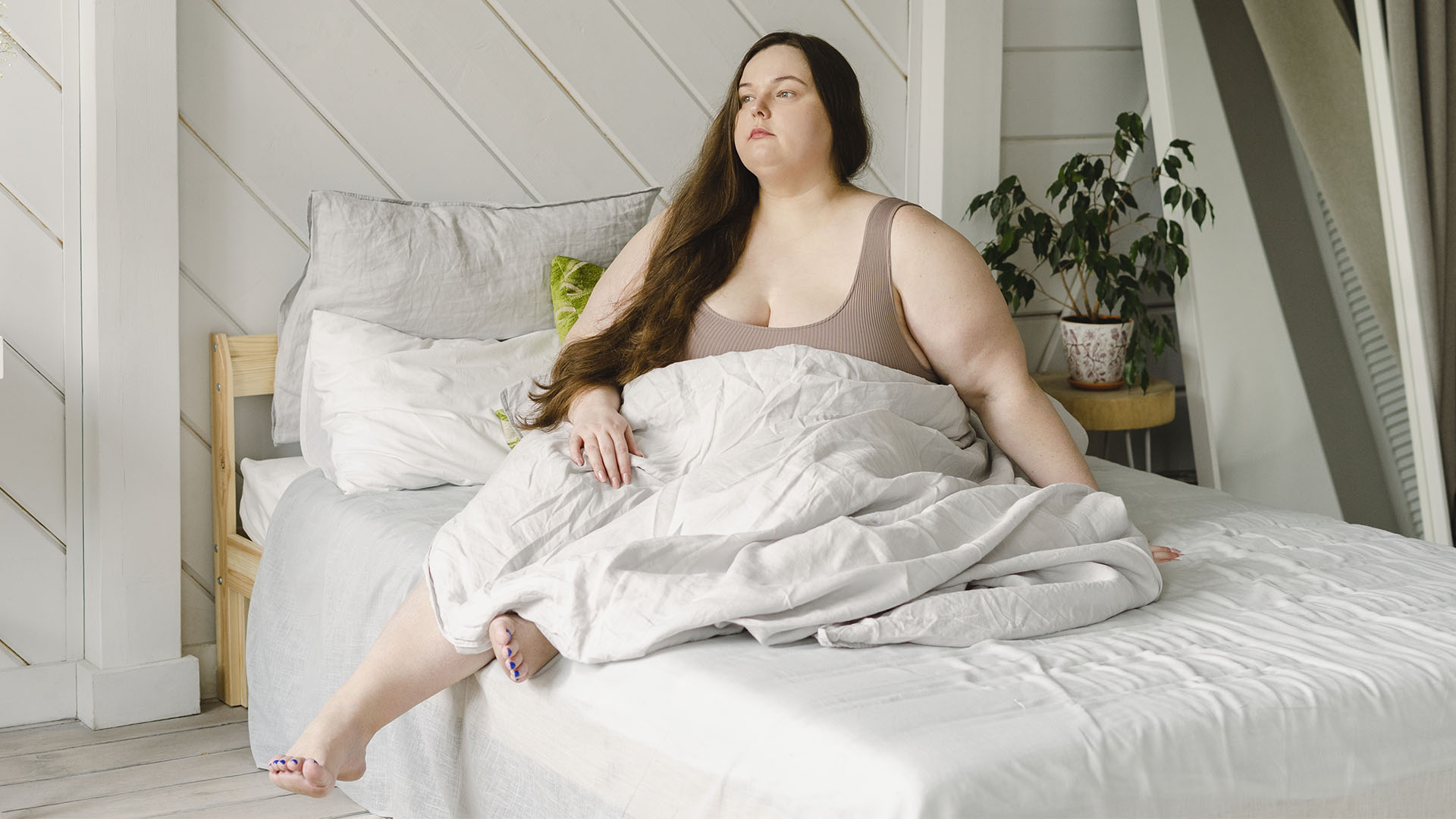
2. Support
Memory foam mattresses are generally made up of multiple layers of foam, with softer upper layers given stability by dense layers beneath. A memory foam mattress for a heavy person needs to have a strong supportive core, otherwise it can feel like you're sinking straight through the mattress and out the other side.
Initially a memory foam mattress can feel very supportive, so if you're looking for a short term bedding solution, this could be a good choice. However, frequent use can cause memory foam to start sagging. Instead of slowly easing back into its initial shape, you might notice dents in the bed where you've been lying.
With this in mind, it's important to note that many hybrid beds use memory foam as upper comfort layers. This means you can enjoy the squishy cushioning of memory foam but with the stronger support of coils beneath. It's not exactly the same feeling as an all-foam bed, but a potential compromise.
3. Spinal Alignment
The softer 'hug' of a memory foam mattress can lead to the body pushing into the mattress, with the pressure points likely to sink further into the bed than the rest of the body. This often results in the hips and lower back drifting significantly lower than the rest of the lumbar region, leading to back ache.
There are ways to navigate this issue. Some all-foam beds will add layers of a firmer supportive foam targeted at the lumbar region to help maintain spinal alignment — learn more in our guide to choosing a mattress for heavy people with back pain. However, if the overall build has too much sink, you can regularly expect to wake up with some aches and pains.

What about high density foam mattresses?
High density foam has more foam cells per foot than low density foam, resulting in a heavier, denser build that will deteriorate slowly even with frequent use. We define a high density foam as weighing upwards of 2.5lbs, with a 1.8lb density acceptable, and 1.5lb density considered the minimum.
Due to the increased durability, a high density foam is generally better for those with bigger bodies than a low density foam. The close structure provides more support and it means the bed is less likely to start sagging with regular use.
One of the issue with purchasing a memory foam mattress for a heavier body is that sleep brands are rarely upfront about the density of the foams used in their mattresses. That can make it hard to determine if your mattress foam is actually high density (more than 2.5lbs) or is just using density to look appealing (it's not a regulated term). The easiest way to determine density is often to contact the brand directly.
My top 3 mattresses for heavy people
1. The WinkBed Plus mattress: was from $1,349 now $1,049 at WinkBed
The WinkBed Plus is our favorite mattress for heavy people, with a luxury handmade-to-order finish, supportive feel, and an evergreen sale knocking $300 off the MSRP. At $1,699 for a queen (was $1,999) it's still a premium buy, but it's competitive for a luxury mattress with an increased weight capacity. Plus, the gel-infused Euro pillow top provides the WinkBed with excellent pressure relief, as we noted in our WinkBed mattress review. Good news if you want memory foam cushioning but need more support.
2. DreamCloud Premier Hybrid mattress: was from $1,169 now $649 at DreamCloud
The DreamCloud Premier Hybrid isn't a specialist mattress for bigger bodies, but it does have sturdy coils to provide ample support where it's most needed. In our DreamCloud Premier Hybrid Mattress review our testers were impressed with the plush feel of this budget-friendly mattress, which makes it a good choice for side sleepers who have a bigger build. Your shoulder and hips will feel nicely cradled, but without the sink of an all-foam bed. Evergreen DreamCloud mattress sales mean you never have to pay full price, and right now a queen is just $949 (was $1,832). Plus, you get a year long trial and forever warranty.
3. Titan Plus Luxe mattress: was from $899 now $674.30 at Titan Mattress
The Titan Plus Luxe is described as having "plush yet sag-resistant foams", so if you have a heavier build but want a touch of memory foam contouring, this is an excellent choice. There's an evergreen 25% off sale at Titan, reducing a queen size with a cooling cover to $1,311.80 (was $1,749). This is sometimes bumped up to a 30% discount, but that only happens around the major holidays. You'll also get 120 nights to test the bed and decide if it offers the right blend of comfort and support for you.
Sign up to get the BEST of Tom's Guide direct to your inbox.
Get instant access to breaking news, the hottest reviews, great deals and helpful tips.

Ruth is a staff writer at Tom’s Guide, covering all things mattress and sleep. She has a deep interest in the link between sleep and health, and has tried enough mattresses to know the right bed really can make a difference to your wellbeing. At Tom’s Guide she writes to help people sleep better, from how-tos to the latest deals to mattress reviews, and has interviewed an array of specialists who share her passion. Before joining the team at Tom’s Guide, Ruth worked as a sleep and mattress writer for our sister website, TechRadar.
